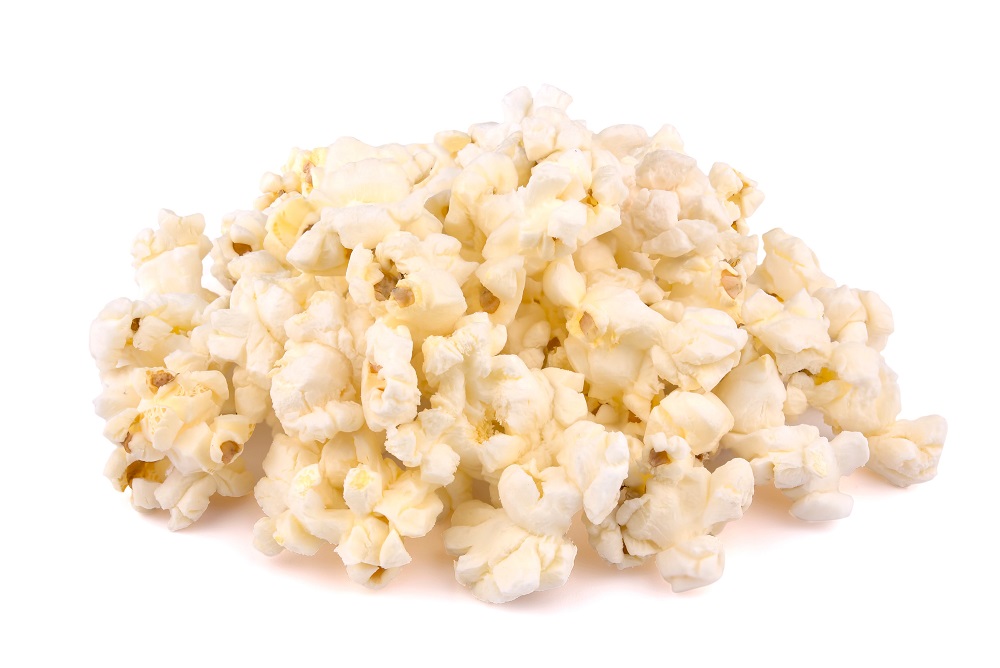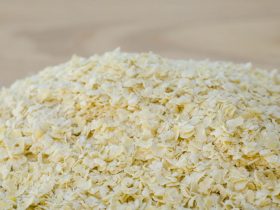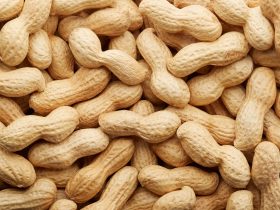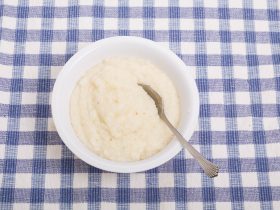Evident in its name, popcorn is a group of corn species specifically bred for the purpose of “popping” when subjected to high levels of heat. The mechanism behind this is the presence of moisture beneath the surface of the kernel, which turns to steam as it is heated, rupturing the surface and popping the corn1.
Because of popcorn’s expanding size and the amount it is sold in, it is common to make too much during a movie night. Once popped, popcorn will remain edible for up to two weeks, though it will grow stale far sooner, and as such may not be enjoyable to consume2.
What Temperature is Best for Popcorn?
Popcorn in its raw kernel form is far hardier than if it were already popped, owing to the nature of how it is prepared as well as the hard shell it possesses. Because of this, popcorn is somewhat tolerant to both extremes of temperature, though it is susceptible to drying out and should be kept in a sealed container at all times.

Un-popped, popcorn will keep best between 50°F and 74°F, provided that the storage environment or container has a minimal amount of excess moisture and mechanical pressure.
What is the Ideal Humidity for Popcorn?
As previously mentioned in this article, popcorn is capable of drying out, affecting its texture and potentially preventing it from popping properly.
In order for popcorns to pop, they require an internal water content of fourteen percent3, and as such should be kept in a storage vessel or environment free of air-flow, as well as free of air that is too dry.
The ideal humidity for the storing of popcorn is a relative 60%, about the same humidity as that of a kitchen.
How Long Before Popcorn Goes Stale?
Once popped, a multitude of factors go into how long popcorn will retain its crisp texture. The presence of preservatives and additives, the relative humidity of the environment and excess exposure to air can all increase or decrease the time popcorn retains its maximum quality.
On average, freshly popped popcorn that has been air-popped and has few preservatives should only last up to seven hours before it begins to degrade, developing a chewier and more stale texture.
To avoid this, it is best to treat the popcorn with butter and salt or similar lipid coatings, as this will reduce its exposure to air and moisture. Keep the oil or butter coated popcorn in an air-tight container at just above room temperature.
Can You Refrigerate Popped Popcorn?
In short- no, it is not advisable to keep already cooked popcorn in the refrigerator.
Popcorn, being a low water-content food, is very likely to absorb moisture, especially at lower temperatures where condensation is more likely to occur. Even when sealed in an air-tight container, popcorn may still grow stale in the fridge.
If it is absolutely necessary to store the popcorn in your fridge, it is best to vacuum-seal the popped kernels after brushing them with butter or oil.
Can You Freeze Popped Popcorn?
Though refrigerating popped popcorn kernels is inadvisable, freezing it is somewhat more preferable.
Keep in mind that popcorn is ideally enjoyed freshly popped, and that freezing it is simply for long term storage in the event that it is needed. It is still better to keep the popcorn in its raw kernel form.
To freeze your popped popcorn, allow the individual corns to cool to room temperature after cooking. This is to ensure that the maximum amount of steam has evaporated from them.
After cooling, pour the popcorn into a plastic bag or container large enough to prevent the popcorn from crushing each other. Place in the freezer for up to two weeks.
Do not refreeze the popcorn, as once it has thawed, refreezing will ruin its texture owing to the nature of moisture.
Can You Freeze Uncooked Popcorn Kernels?
Unlike freezing popcorn kernels that have already been cooked, freezing unpopped kernels is not recommended.
When the temperature of water is lowered to below 32°F, the individual molecules are pushed further apart, forming a lattice-like structure interconnected by hydrogen bonds. At a larger scale, this means that the water crystallizes and expands as it becomes solid.
In the context of popcorn kernels, the crystallization and expansion of its internal moisture will damage it from within, affecting its texture and ability to pop.
This may also present in the form of the kernels drying out, entirely preventing them from being popped.
It is best to simply keep raw popcorn kernels sealed in an air-tight container within a cupboard. This doubly applies if the popcorn has extra ingredients, such as cheese powder or butter.
What is the Best Method to Store Popped Popcorn Kernels?
Though this article has presented a multitude of possible options, it should be kept in mind that each method written here has its drawbacks and benefits.
The ideal storage method for popcorn that has already been popped should be both low in moisture and air-flow while also discouraging the growth of microorganisms.
As each of the methods listed here do not encompass those requirements in their entirety, it is best to keep popcorn in an air-tight and warm container free of water for up to a day. If the conditions are perfect, your popcorn should retain its texture and taste for up to twenty-four hours.
If longer-term storage is required, however, refrigerating them is the best choice, though they will no longer be at their best.
What Makes Popcorn Go Stale?
Long term food storage is a complicated science with many factors that are, often enough, competing to spoil your food.
Fortunately, popcorn is less susceptible to bacteria and fungal colonization because of its low water content. This is a double-edged sword, however, as the low moisture present in popcorn will also draw moisture from the air.
The rigid and crunchy texture of popcorn is entirely dependent on it remaining dry, and thus if the popcorn is allowed to absorb moisture, it will lose this particular characteristic.
In order to reduce the amount of moisture absorbed by your popcorn, it is best to coat them in oil and only salt immediately before consuming, as salt is hygroscopic and will absorb moisture as well.
References:
1. Michelle Higgins. (5 May 2017). “How Popcorn Pops”. Thoughtco.com
2. Unknown author. (January 2020) “How Long Does Popcorn Last?” bedfordcandies.com
3. J. G. WiLLiER, Arthur M. Brunson. (1922) “Factors affecting the popping quality of popcorn” Journal of Agricultural Research, U.S. DA





Hi, I'm Dom
Dom Eats was started to help other people fall in love with food. While cooking can feel intimidating, it doesn't have to be.